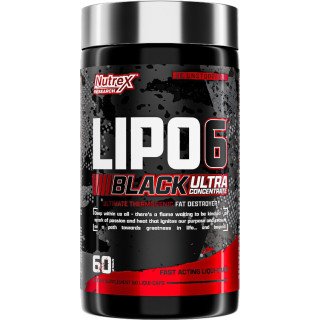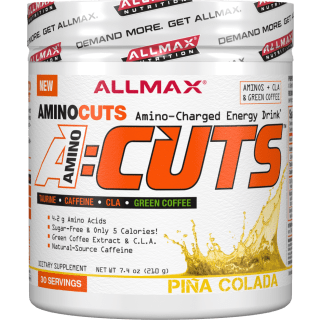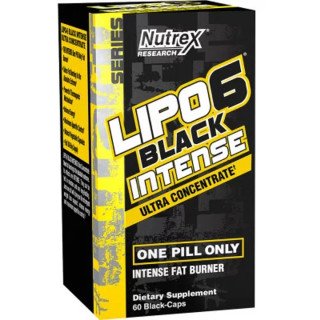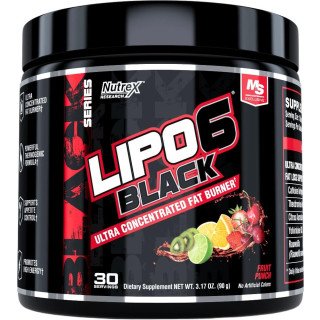Discover the pivotal role of sleep quality in boosting cognitive performance for young adults. Explore how better sleep combats deprivation...

WEIGHT LOSS
WEIGHT LOSS
Weight loss is the process of losing body weight, often including fat loss, water weight, and muscle loss.
Goal OVERVIEW
Weight loss is often used as a health goal, but it is important to note that not all weight loss is created equal. Losing weight too quickly or in an unhealthy way can be harmful to your health. It is important to focus on losing fat and maintaining muscle mass, as this will help you to improve your overall health and well-being.
Let’s look at the difference between weight loss and fat loss: weight loss is the decrease in total body weight, which, as stated, can be due to a loss of fat, muscle, or water. Fat loss is the decrease in body fat mass, the main component of body weight and what everyone wishes to hold low percentages of.
What You Should Know
Weight loss, when approached correctly, offers an array of health benefits. Reducing the risk of chronic diseases like heart disease, stroke, type 2 diabetes, and certain cancers combats obesity – a major contributing factor. Additionally, shedding excess fat positively impacts physical and mental well-being. Elevated energy levels, improved sleep, reduced pain, and decreased stress and anxiety all contribute to enhanced overall health. Beyond these physical and mental gains, weight loss can foster increased self-esteem and self-confidence, leading to a more positive self-perception and appearance.
FOOD FOR THOUGHT
In weight loss, the journey is just as significant as the destination. Opting for a gradual approach to shedding pounds can prove paramount. Slow and steady weight loss, achieved through sustainable lifestyle changes, allows your body to adapt, preventing drastic fluctuations and potential health risks. This method promotes the preservation of lean muscle mass and encourages healthy habits that can be maintained long-term. Embracing a gradual transformation cultivates a healthier relationship with food, enhances the likelihood of sustainable results, and prioritizes your well-being over quick fixes.

SHAGANDHA® BY SABINSA
Shagandha® is a standardized powdered extract from the roots of Withania somnifera, commonly known as ashwagandha. Shagandha® offers various health benefits, including reducing stress, anxiety, and insomnia while improving cognitive function, reducing inflammation, and boosting the immune system. It is available in capsules, powders, and teas and is often used in herbal mixtures. Considered to be a breakthrough Adaptogenic.
Sponsored Content
FAQ
Supplements can support weight loss with a balanced diet, regular physical activity, and healthy lifestyle habits. However, it’s important to emphasize that no supplement can safely replace the fundamental principles of calorie balance and a healthy lifestyle.
Below are some ways in which supplements may help with weight loss:
1. Appetite Control and Hunger Reduction:
- Some supplements contain ingredients that help reduce appetite and curb cravings, making it easier to stick to a calorie-controlled diet.
2. Metabolism Boosters:
- Certain supplements claim to increase metabolic rate, helping burn more calories throughout the day. However, the impact on metabolism is often modest and varies between individuals.
3. Energy Boost:
- Some supplements contain stimulants or ingredients that temporarily boost energy, which may lead to increased physical activity and calorie expenditure.
4. Fat Metabolism and Thermogenesis:
- Some supplements are marketed to enhance fat metabolism and increase thermogenesis (heat production), which helps increase the number of calories burned.
5. Nutrient Support:
- Supplements like multivitamins and minerals can support overall health during a calorie-restricted diet, ensuring you get essential nutrients despite consuming fewer calories.
6. Reducing Water Retention:
- Some supplements are claimed to help reduce water retention, which can lead to temporary weight loss by decreasing bloating.
7. Stress and Mood Management:
- Stress and emotional eating can hinder weight loss efforts. Some supplements support stress management and mood, which may indirectly impact eating habits.
It’s important to approach weight loss supplements with caution and be mindful of the following considerations:
- Research and Evidence: Many weight loss supplements lack robust scientific evidence to support their effectiveness and safety.
- Healthy Lifestyle: Supplements should not be viewed as a replacement for a balanced diet and regular exercise.
- Quality and Safety: Choose supplements from reputable brands that undergo third-party testing for quality and purity.
- Consultation with a Healthcare Professional: Before taking any weight loss supplement, consult a healthcare professional to ensure it’s safe and appropriate for your health status and goals.
- Long-Term Sustainability: Focus on adopting sustainable and healthy lifestyle habits for long-term weight management.
It’s also important to be wary of supplements that make extravagant claims or promise rapid and effortless weight loss. The most effective and sustainable approach to weight loss involves making gradual changes to your eating habits, increasing physical activity, and seeking support from healthcare professionals or registered dietitians if needed.
Choosing nutrient-dense foods that support satiety and overall health is essential to lose weight. Opt for non-starchy vegetables like broccoli and leafy greens, as they are low in calories and fiber. Include lean proteins such as chicken, fish, and legumes to control hunger and preserve muscle.
Whole grains like quinoa, brown rice, and healthy fats from avocados and nuts provide sustained energy and satisfaction. Fruits, low-fat dairy, or dairy alternatives can add variety and essential nutrients. Utilize herbs and spices for flavor without extra calories, and stay hydrated with water.
A successful weight loss plan emphasizes portion control, balanced meals, and meal planning to avoid overeating and unhealthy choices. Focus on whole foods that combine protein, healthy fats, and complex carbohydrates. Be mindful of portion sizes and plan meals to make healthier choices.
Remember, the key to weight loss is adopting a realistic and sustainable approach that you can maintain over time. Consulting a healthcare professional or dietitian can provide personalized guidance tailored to your needs, helping you make gradual, long-term changes to your eating habits. By incorporating these principles into your daily routine, you can work towards your weight loss goals healthily and satisfyingly.
A balanced approach combining cardiovascular exercises and strength training is highly effective for losing weight. Cardiovascular exercises like walking, running, cycling, swimming, and High-Intensity Interval Training (HIIT) help to burn calories and enhance cardiovascular fitness.
Strength training, including compound exercises like squats deadlifts, and bodyweight exercises such as planks and push-ups, can boost metabolism and tone muscles. Flexibility and balance exercises, including yoga and Pilates, complement the routine by improving overall body awareness. Consistency and gradual progression in intensity are key for successful weight loss.
Combining exercise with a balanced diet amplifies the results, targeting weight loss and overall health. Before embarking on a new exercise regimen, consulting a healthcare professional is advised, primarily if underlying health conditions exist. Select exercises that align with your fitness level and that you enjoy to maintain motivation and achieve your weight loss goals.
Fat burners, or thermogenic supplements, are products designed to increase metabolism and fat oxidation. While they are popular in the weight loss industry, their use is surrounded by advocacy and caution.
On one hand, some fat burners contain ingredients like caffeine, green tea extract, and other natural substances known to enhance metabolism. These ingredients can support weight loss with a healthy diet and exercise regimen.
On the other hand, the safety and effectiveness of fat burners remain widely debated. Certain over-the-counter products lack scientific evidence and may contain dubious ingredients. Some fat burners may cause side effects like insomnia, heart palpitations, high blood pressure, or gastrointestinal issues. For this reason, informed supplement users seek out specialty ingredients like those found in GenMag.com.
The decision to embrace or avoid fat burners should be based on individual needs, preferences, and underlying health conditions. If considering fat burners, it’s advisable to consult a healthcare provider, registered dietitian, or industry professional. They can assess your situation and recommend a safe and effective approach to weight loss. Look for products that are transparent about their ingredients and choose those that have been third-party tested for purity.
In conclusion, while fat burners offer exciting benefits for many individuals, they are not a magic solution for weight loss. A balanced diet, regular exercise, and a healthy lifestyle remain the most proven and sustainable ways to achieve and maintain weight loss goals. Careful consideration, professional guidance, and adherence to healthy principles are key when contemplating using fat burners.
Related Videos
Articles
TeaCrine® is referred to by its suppliers, Compound Solutions, as a "feel-good energy" due to its ability to provide energy...
Nitrosigine® is popular among bodybuilders, fitness enthusiasts, and individuals looking for improved heart health. This acclaimed ingredient is believed to...

























